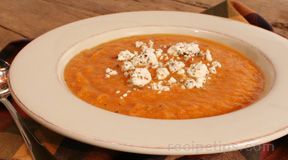Loading
Similar Content to: Cold Pasteurization
back to Cold Pasteurization

A term that is used to describe the process of pressing fruit, seeds, and nuts to obtain oil without the use of additional heat to extract the oil. Oils obtained through cold pressing, or cold extraction, are much more flavorful than oils obtained through refining processes that employ heat to extract the oil. Cold pressed oils are also more expensive, have a shorter shelf life, and do not hold up as well for high heat cooking as refined oils, but there is no substitute for the flavor they provide.
Most cold pressing is performed with the use of heavy granite millstones or modern stainless steel presses, which are found in large commercial operations. Although pressing and grinding produces heat through friction, the temperature must not rise above 120ºF for any oil to be considered cold pressed. The maximum temperature for cold pressed olive oil is somewhat lower. Olive, sesame, peanut, and sunflower are among the oils obtained from cold pressing. (Highly refined versions of these oils are also produced.) Cold pressed oils retain all of their flavor, aroma, and nutritional value.

Loading
Advertisement
Advertisement










